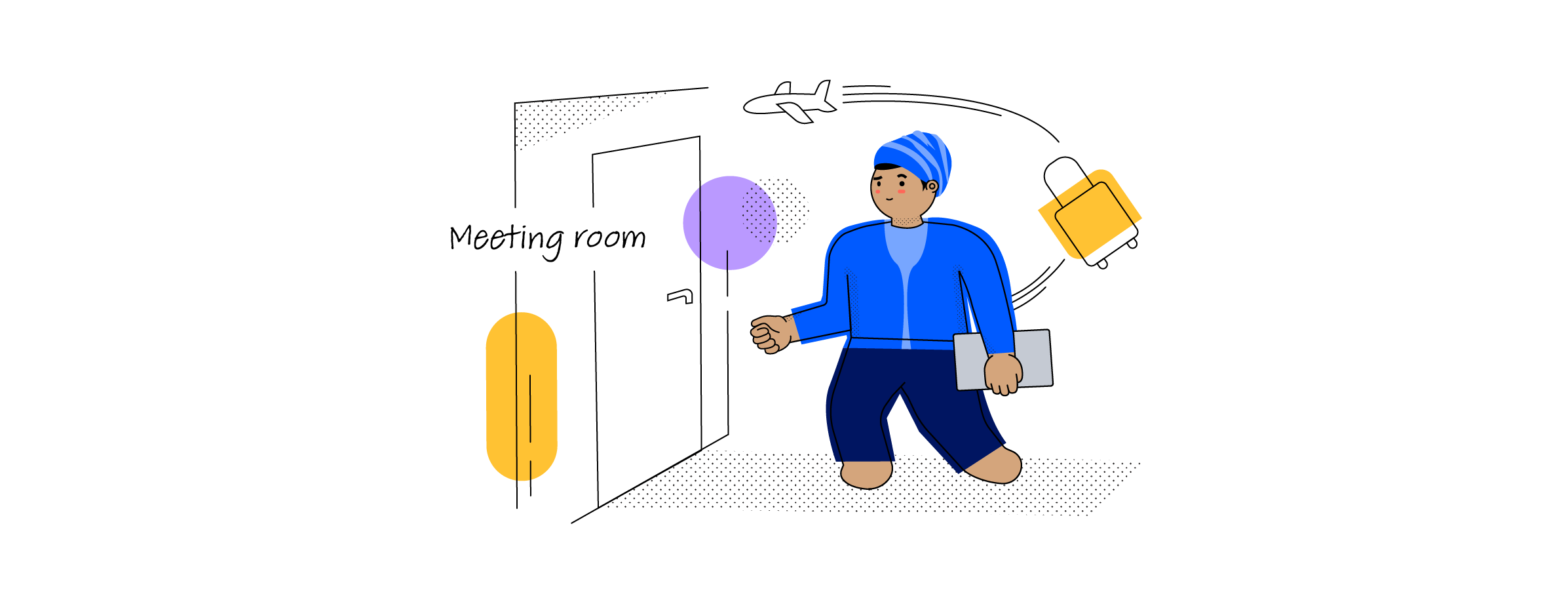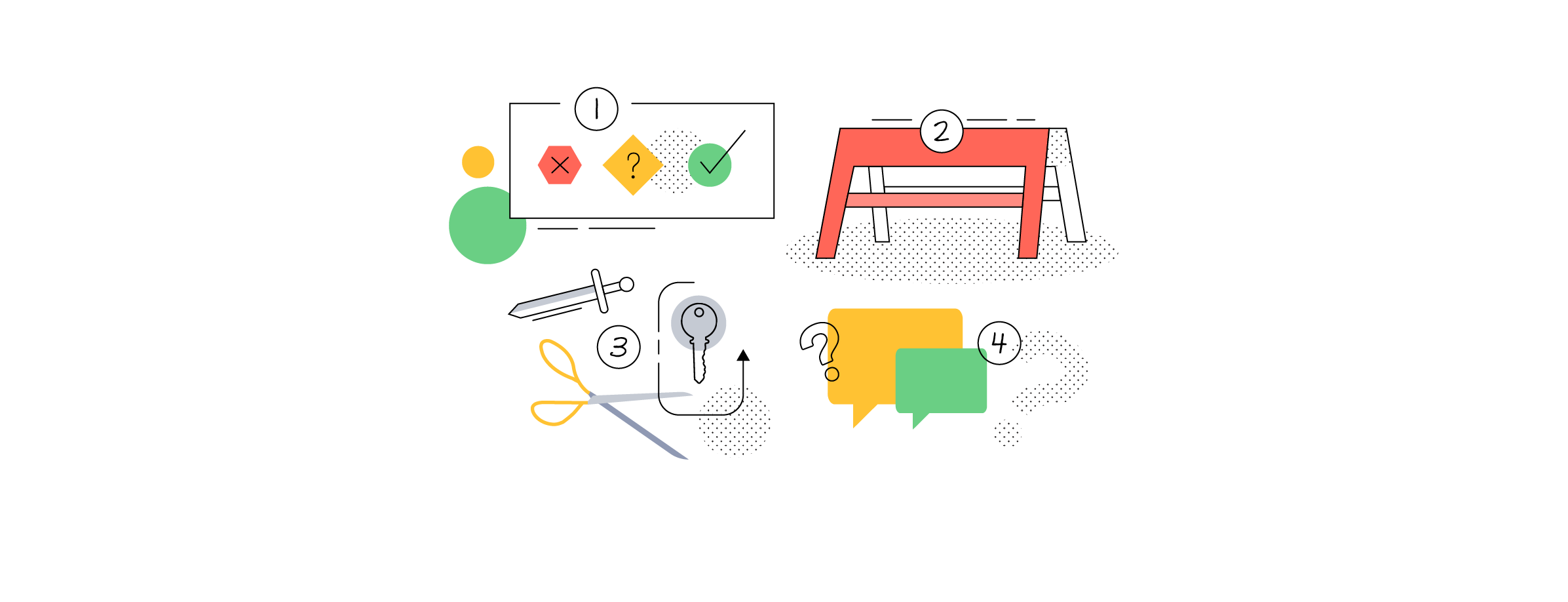One-on-one meetings can be tough, but they don’t have to be. Our Director of Talent Acquisition, Alexandra, reels off key tips for making the most of them – both as a manager and employee
Tips for better one-on-one meetings

One-one-one meetings bring immense value to the results of our work and our professional development. Here at Airtame, we believe they are a perfect tool that helps us to achieve several goals simultaneously.
- It is an excellent way to define obstacles in your team’s way and find the right way to overcome them.
- The absence of the distractions and open conversation help you to get to know your direct reports better and nurture the culture of transparency within the team.
- Last but not least, one-on-one chats are the best time to provide constructive feedback and help your team grow professionally.
At Airtame we value working smarter. We have discovered a few tricks and tips that improve the experience of our one-on-ones, and we would like to share them with you.
Regular and well-structured one-on-one meetings
One of the keys to successful one-on-one sessions is regularity. There is no mandatory schedule for the chats, and we recommend to choose the one that works the best for you and your team members. But it is crucial to keep them as regular meetings: weekly, bi-weekly or monthly.
We have people working across the world at Airtame, and this can make digital forms of communication not only ideal but often a necessity. But believe us nothing can be better than good old face-to-face meetings where you can get the feeling of the current mood and see the body language of your team members. In-person communication helps to hold an open dialog and get a better outcome from the chat.

If you have direct reports sitting elsewhere in the world, you need to go the extra mile to make sure they are heard and that you, as manager, are there for them. Once in a while, this might mean traveling to wherever they may be and taking that one-on-one session in person.
Above all, one-on-ones are important just like other meetings, and you shouldn’t sacrifice them in favor of different arrangements. If you always reschedule your chats, it becomes more challenging to build a habit of regularity, and you are losing the value of these meetings.
Structure doesn’t mean fixed, especially in terms of location. It can often be effective to schedule your one-on-ones outside of the typical working environment, so your team members can relax and let loose. Once in a while, try out a walk and talk in the park, or treat your employee to a coffee in a nearby cafe.
A loose agenda is better than no agenda
As for the one-on-one itself, we always recommend having an agenda that you can follow. It depends on what you want to cover during the meeting, but we usually follow these key points:
- Quick status of the ongoing projects.
- Challenges and roadblocks.
- Action plan to overcome existing challenges.
- Feedback.
Of course, you get the best outcome from one-on-one if your direct reports are well-prepared and follow the agenda. Needless to say, you should share it with your team members in advance.
And last, keep the right direction of your conversation: don’t dive into the project details but discuss all important questions and make an action plan that you and your reports can follow. We also recommend to make notes during the conversation, so you can get back to the agreements and action points later.

Support and coach
Most of the one-on-ones start with the regular update, and it is the easiest part. It becomes more challenging when you discuss the obstacles and way to overcome them. Sometimes, you need to dive deeper into the problem, find a cause of it and build an action plan.
In many ways, you can consider a manager as a coach for the team; figuring out how the team can play well together while also encouraging individual growth. To do that, you need to fully get to know the team and ask the right questions in these sessions. Questions that highlight the main roadblocks and find the right solution. Here are a few examples:
- Why did we move a deadline for a project?
- Did you have any constraints that affected the deadline of a project?
- Do you think we are missing any other risks that can affect the result?
- Are you reaching your full potential? If not, why not?
- What blind spots have you detected within the team, or on a project?
- Can the team or I help you?
Remember, it is crucial to keep it relaxed. Make sure your direct reports are not intimidated by your questions. You should explain that you want to help them to find all constraints and improve an approach to a particular situation. And, crucially, let them take the floor and do the majority of the talking.

Time for feedback
The action plan is ready? It is time to move forward with the most challenging part of your one-on-one meeting, feedback session. Here at Airtame, we believe that transparency helps us build a strong team of professionals and improve our ways of working. That’s why we always encourage our employees to keep an open conversation and share feedback.
We think the best starting point for the feedback session is a recognition of the results and positive feedback. It will help you to steer the discussion in a positive direction. And if there is room for improvements, you should provide your recommendations.
We recommend applying the burger model – lacing your initial feedback with something positive, followed by a more constructively critical middle, and finishing up with something positive once again.

Furthermore, the feedback should go both ways. Managers also should be open to criticism and listen to their direct reports.
The flip-side: One-on-ones with your manager
Preparation goes both ways, and you need to think ahead of your next one-on-one with your own manager. They probably aren’t mind-readers, so it’s important you communicate verbally what is on your mind, or at least write it down. Do your homework and go into these meetings with confidence – it’s the one main time you can be heard without interruption.
Here is a short list of what you need to prepare for your next one-on-one:
- Make a list of assignments that you have been working on to highlight the main focus and results.
- Take notes, focus on the headlines, and don’t get too lost in the minutiae.
- Think of the challenges that you have been facing since the last one-on-one, and try to define the main roadblocks.
- If there is something that bothers you and raises anxiety, feels free to share your concerns with your manager.
- Reflect on the past week and see if your current projects align with your annual goals and you have enough tasks that help you grow professionally.
- Keep it short and straight to the point.
- Always ask for feedback and talk about the improvements that you can make.
- Schedule the next one-on-one at the end of the concurrent one. It will make your action points tangible.

So, get started today with more effective one-on-one meetings. It’s good for the health of your company, and the individuals that help make it special.